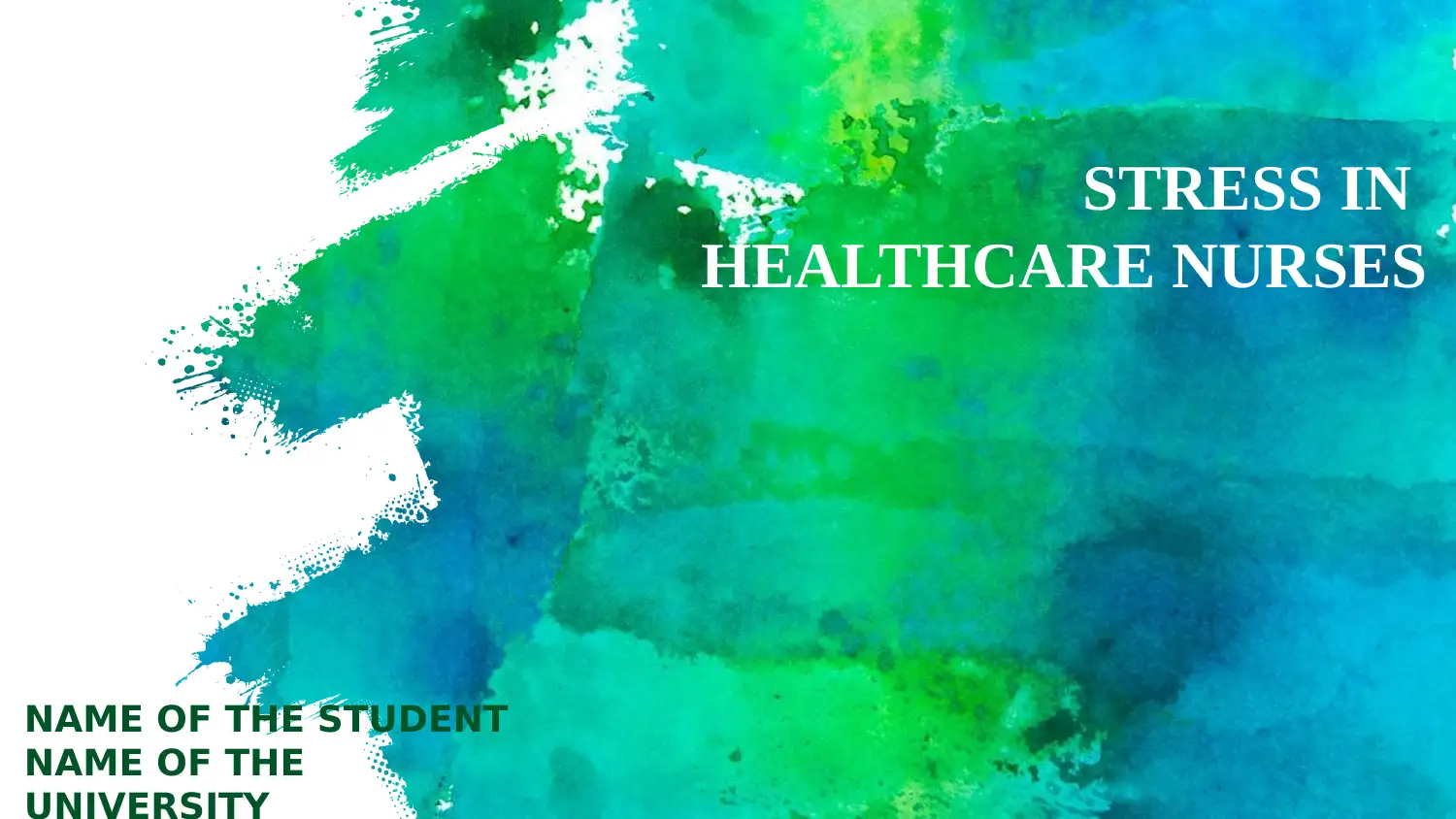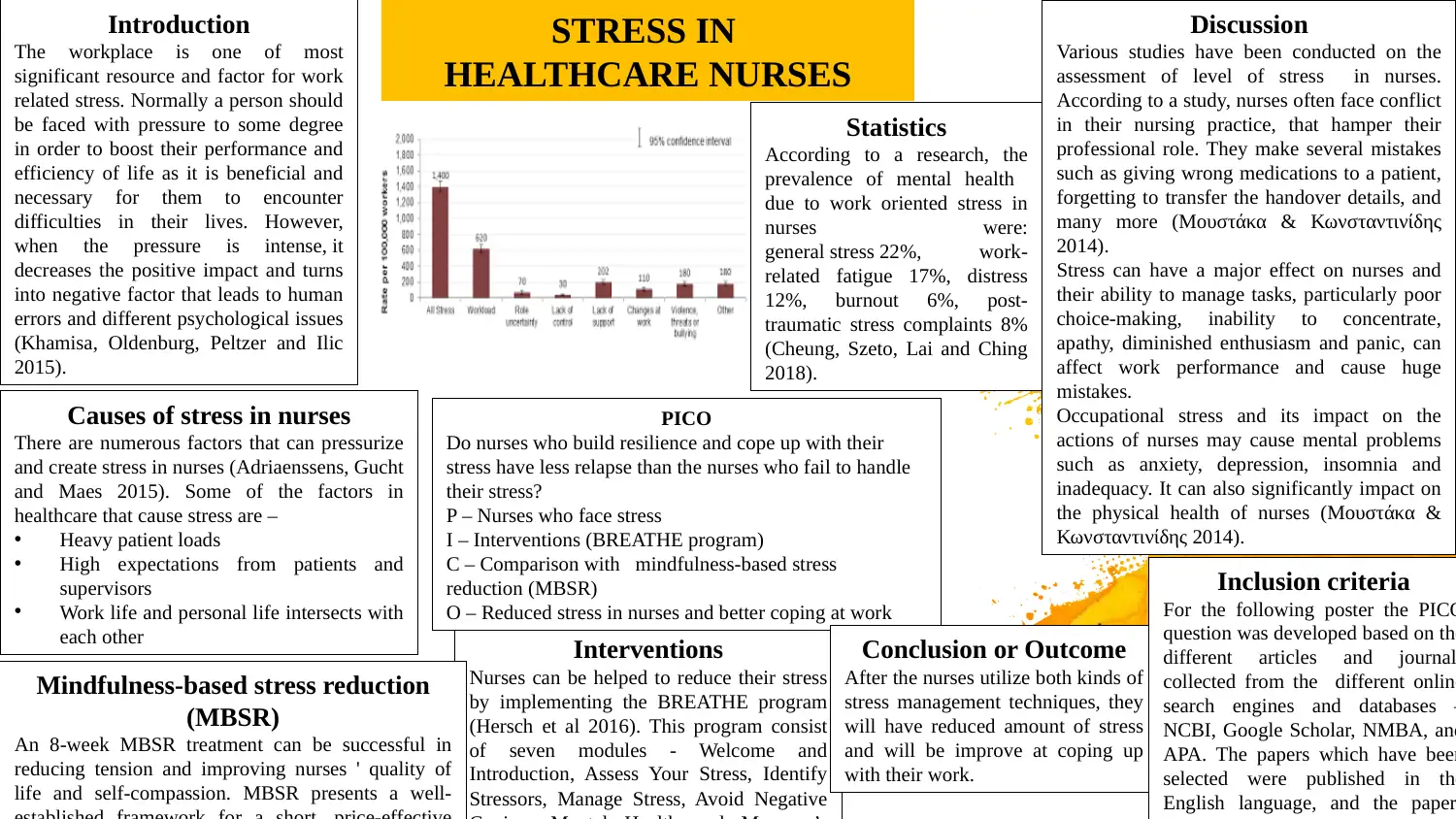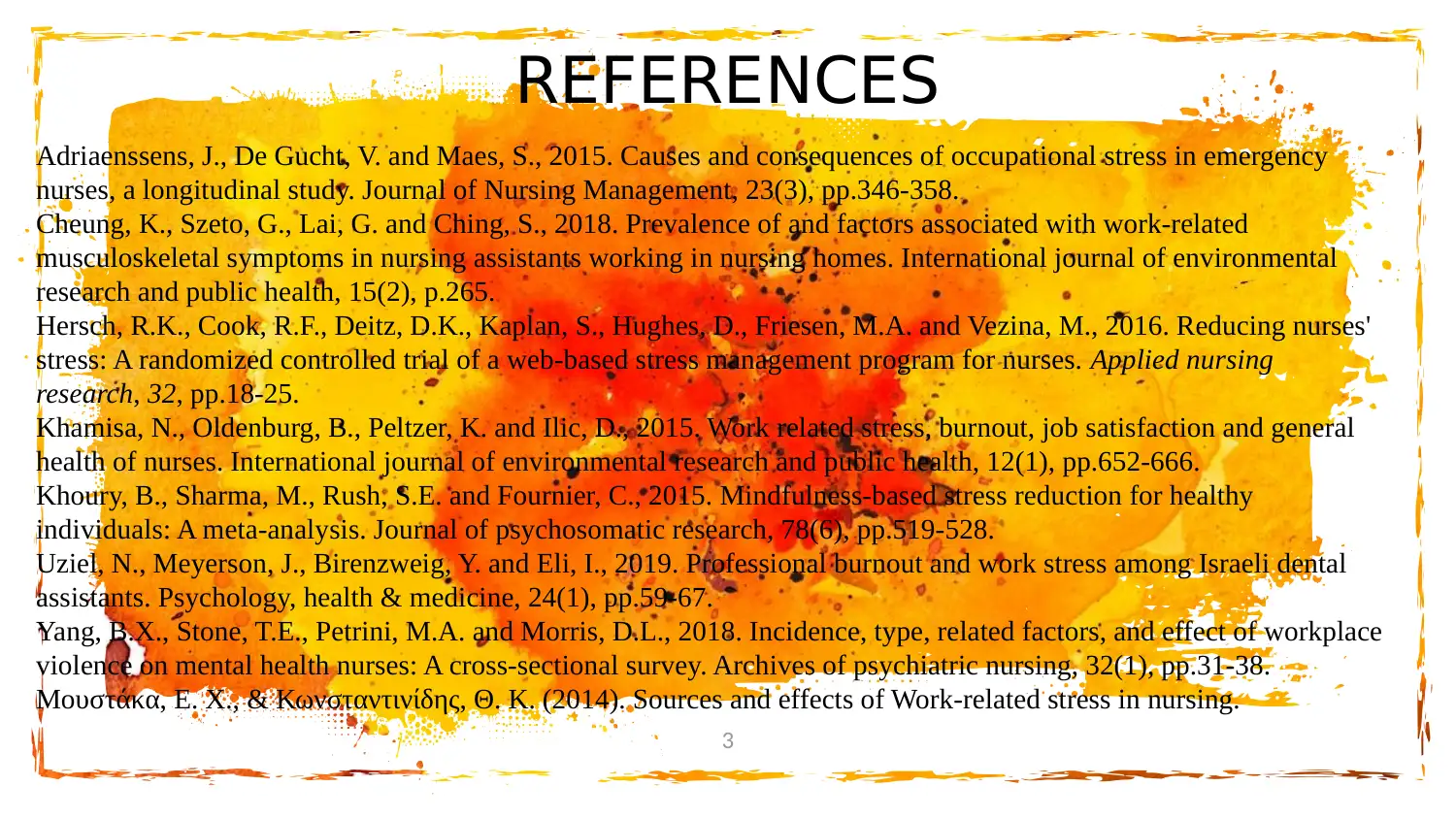Investigating Stress in Healthcare Nurses: A Comprehensive Report
VerifiedAdded on 2022/09/30
|3
|989
|132
Report
AI Summary
This report examines the multifaceted issue of stress among nurses in healthcare settings, identifying key stressors such as heavy patient loads, high expectations, and the intersection of work and personal life. It highlights the prevalence of mental health issues like general stress, work-related fatigue, and burnout among nurses. The report discusses the impact of stress on nurses' performance, potentially leading to errors in medication and compromised patient care. Interventions such as the BREATHE program and Mindfulness-Based Stress Reduction (MBSR) are explored as effective strategies for stress management and improved coping mechanisms. The research includes a PICO question to assess the effectiveness of resilience-building interventions. The study concludes that implementing stress management techniques can significantly reduce stress levels and enhance nurses' ability to cope with workplace challenges, ultimately improving their overall well-being and patient outcomes. The findings are based on a review of literature from 2014-2019, focusing on articles published in English and sourced from databases like NCBI, Google Scholar, NMBA, and APA.
1 out of 3









![[object Object]](/_next/static/media/star-bottom.7253800d.svg)